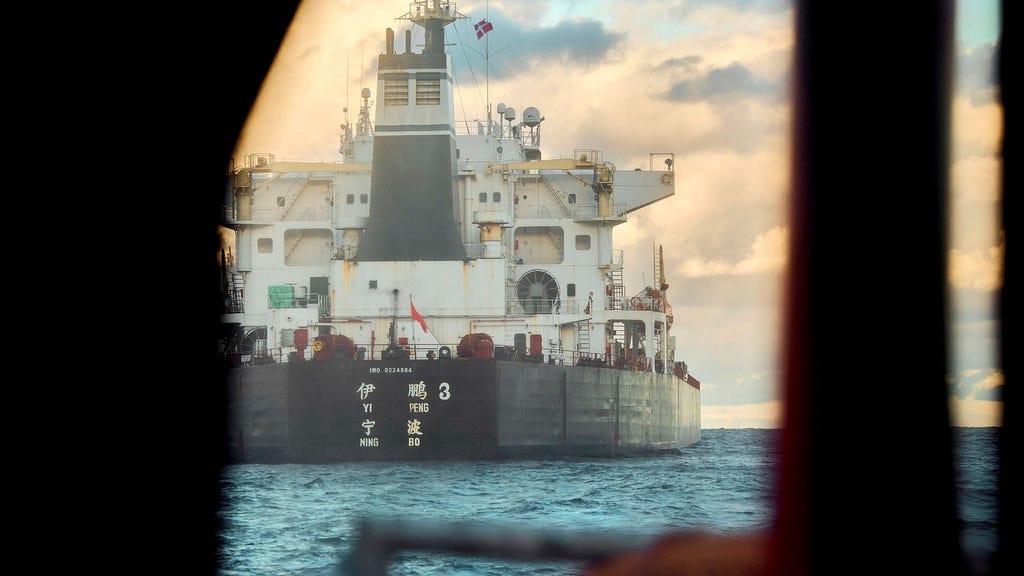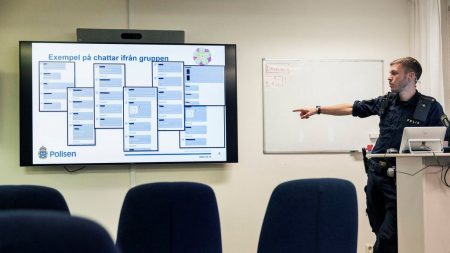The Swedish Accident Investigation Authority (SHK) boarded the Chinese cargo ship Yi Peng 3 on Thursday, September 28, 2023, following its collision with the Danish cargo ship Karin Høj on Monday, September 25, in the Baltic Sea south of Ystad, Sweden. The boarding allowed investigators to gather crucial factual data integral to understanding the circumstances surrounding the collision. Jonas Bäckstrand, representing the SHK, confirmed to the Swedish newspaper Dagens Nyheter (DN) that the newly acquired information significantly strengthens their understanding of the incident, providing a more comprehensive picture of the events leading to the collision and its aftermath. While the specific nature of the collected data remains undisclosed at this stage, the statement suggests a positive step towards a thorough and objective investigation.
The investigation into the collision is multifaceted, encompassing various aspects of maritime safety and regulations. The SHK’s focus lies primarily on determining the causative factors behind the collision, including potential navigational errors, equipment malfunction, human factors, and the influence of environmental conditions. This technical assessment will likely involve scrutinizing the vessels’ voyage data recorders (VDRs), often referred to as the ”black boxes” of ships, which capture crucial navigational data like speed, course, and communication logs. Investigators will also examine the vessels’ physical condition, focusing on any damage sustained during the impact and its potential role in the sequence of events. Interviews with crew members from both vessels will provide valuable first-hand accounts and insights into the decisions and actions taken before, during, and after the collision.
The collision between the Yi Peng 3 and Karin Høj occurred in a busy shipping lane, raising concerns about the adequacy of existing traffic management systems and the potential risk of similar incidents. The Baltic Sea is a vital waterway for international trade, and the safe passage of vessels is paramount. The investigation’s findings could lead to recommendations for improving navigational safety protocols, potentially including enhanced vessel traffic services (VTS), revised collision avoidance regulations, and increased crew training requirements. The SHK’s investigation also has international implications, as it will collaborate with relevant authorities from Denmark and China, the flag states of the involved vessels, to ensure a comprehensive and coordinated effort. This cooperation will be essential for sharing information, analyzing data, and ultimately drawing conclusions that contribute to enhancing maritime safety on a broader scale.
Beyond the technical aspects, the investigation also delves into the legal and regulatory frameworks governing maritime operations. Determining liability for the collision is a complex process that considers factors such as adherence to international maritime rules, the conduct of the respective crews, and the role of any external influences. This legal dimension is crucial for determining responsibility for damages and potential legal repercussions. The investigation will assess compliance with the International Regulations for Preventing Collisions at Sea (COLREGs), commonly known as the “Rules of the Road,” which define navigational responsibilities for vessels in various encounter situations. Determining whether either vessel deviated from these established rules is a critical part of establishing accountability. The findings will also have implications for insurance claims and potential civil litigation arising from the incident.
The importance of transparency throughout the investigation cannot be overstated. Open communication and the timely release of information, while respecting confidentiality requirements, build public trust and contribute to a more comprehensive understanding of the incident. While the SHK’s preliminary findings are valuable, it’s crucial to remember that the investigation is ongoing. Drawing premature conclusions before all evidence is thoroughly analyzed could lead to inaccurate or incomplete assessments. The SHK has a responsibility to conduct a meticulous and unbiased investigation, considering all available data and perspectives, before reaching definitive conclusions. This commitment to due process ensures that the final report provides a comprehensive and accurate account of the collision, ultimately contributing to improved safety and prevention of future incidents.
The incident serves as a stark reminder of the inherent risks associated with maritime transport and the critical importance of ongoing efforts to enhance safety standards. While accidents can occur despite best practices, thorough investigations play a vital role in identifying areas for improvement and preventing future tragedies. The information gathered from the Yi Peng 3, along with data from the Karin Høj and other sources, will be meticulously analyzed to determine the chain of events that led to the collision. The resulting report from the SHK’s investigation will not only provide closure on this specific incident but, more importantly, contribute to the ongoing evolution of maritime safety regulations and practices, promoting safer navigation and protecting lives and property at sea.














